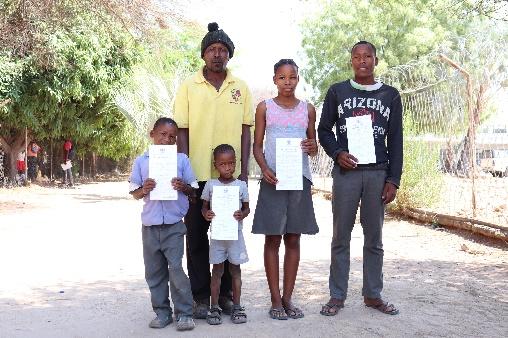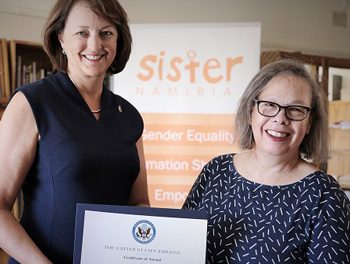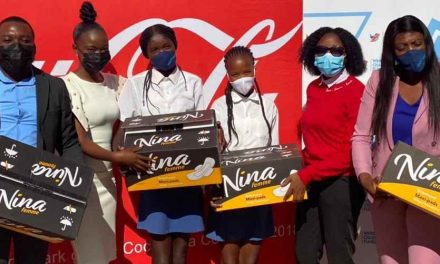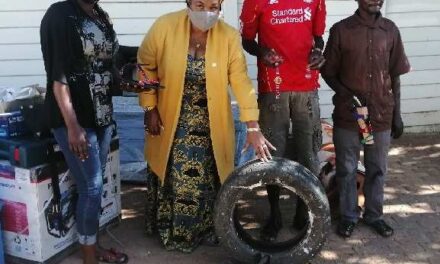
More than 3000 people receive national documents in Kavango regions

The Ministry of Home Affairs, Immigration, Safety, and Security in cooperation with the Reach Namibia programme recently made it possible for 781 orphans and vulnerable children in the Kavango East and West regions to receive national documents.
As a father, Reino Kampende said his children are finally proud owners of national documents, with 19-year-old Hendrik and 16-year-old Elina getting ID cards while Isaka and Andreas, eight and five years old receive their birth certificates. “I am the happiest father in the world,” he said.
Intrahealth Namibia’s Dr Samson Ndhlovu who is responsible for the programme in these regions said the need was established through household assessments that showed that many orphans and vulnerable children did not have national documents. “We found that most parents or guardians of these children do not know the importance or how to apply for these crucial documents. They also do not have the financial means to travel to the Ministry of Home Affairs, Immigrations, Safety and Security office,” explained Ndhlovu.
USAID Country Representative, Dr McDonald Homer said national documents are a requirement for many public and private services, such as accessing social grants, pursuing studies, or simply getting a job. “Not having a birth certificate makes it harder to access these services and creates further insecurities for orphans and vulnerable children,” said Homer.
A resident of Nzinze Village, Elina Sintungu said although she had her national documents, she did not have the money to take her children to the Home Affairs office in Nkurenkuru. “Only now, when the Ministry people came to the region, I was able to obtain their birth certificate, get information, and initiate the first steps to apply for a social grant for them,” she added.
US Embassy Public Affairs Officer and Spokesperson, Tiffany Miller said more than 3000 people received national documents when the outreach initiative was expanded to other community members. “The outreach created awareness and most critically, [brought] services to the people to issue them with national documents including birth certificates. These documents are especially important for people who are already struggling with numerous bread-and-butter issues in their everyday lives,” she added.
The programme is funded by the United States President’s Emergency Plan for AIDS Relief (PEPFAR) through the United States Agency for International Development (USAID) and implemented by Intrahealth Namibia as well as Project Hope Namibia.
 Proud father Reino Kampende (at the back) with his children from left to right, Isaka Kampende, Andreas Kampende, Elina Kampende, and Hendrik Kampende, who received national documentation.
Proud father Reino Kampende (at the back) with his children from left to right, Isaka Kampende, Andreas Kampende, Elina Kampende, and Hendrik Kampende, who received national documentation.













































